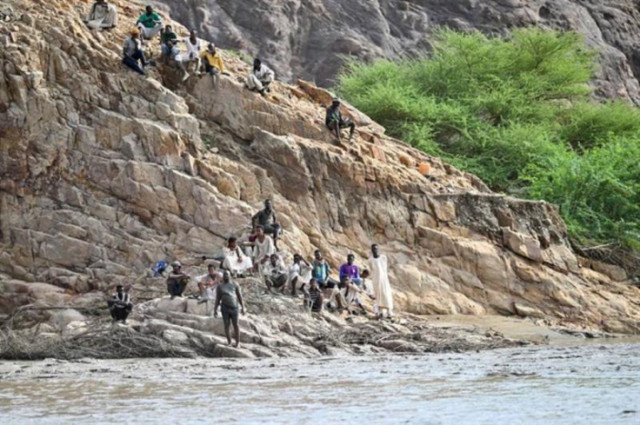At least 60 people have died after the Arbat Dam in Sudan’s Red Sea state burst, following a torrent of water that has devastated the region.
The dam, which holds 25 million cubic meters of water, collapsed under the pressure of heavy rainfall.
Search operations are ongoing, but officials fear the death toll could rise as rescue teams struggle to reach remote areas.
The collapse has washed away farms, villages, and left vast stretches of land unrecognisable.
According to a local resident, simply identified as Ali Issa, "The incident was tragic as many people were stuck in seven cars, they tried to get them out but couldn’t.”
Another resident, Moussa Mohamad Moussa, reported that in one area, “all the houses and everything was swept away.”
The Arbat Dam was a critical source of drinking water for the coastal city of Port Sudan, where the military government is based. Its destruction leaves the city and surrounding areas vulnerable to severe water shortages, adding another layer of hardship to a population already reeling from 16 months of civil war.
Sudan has been embroiled in conflict since April of last year when fighting broke out between the paramilitary Rapid Support Forces (RSF) and the Sudanese army. T
he violence has displaced millions and led to widespread famine, with multiple states now in desperate need of aid. The onset of torrential rains and subsequent flooding have only worsened the humanitarian crisis, forcing tens of thousands more from their homes.
In addition to the human toll, the floods have caused significant infrastructure damage. A major fiber-optic cable was damaged by the heavy rainfall, leading to a communication blackout in many parts of the country for the second consecutive day, according to the privately owned Radio Dabanga website.
The Sudanese air force is working to rescue people who sought refuge in the mountains, but efforts have been hampered by the challenging conditions.
Omar Issa Tahir, Director of the Red Sea State’s Water Authority, told local news site Akhbar that the flooding had “wiped out the entire area.”
Army chief Abdul-Fattah al-Burhan visited the flood-affected areas, and in a Facebook post, the military urged all “federal and state agencies to utilise all possibilities to help citizens in these regions and provide support and assistance to them.”




















